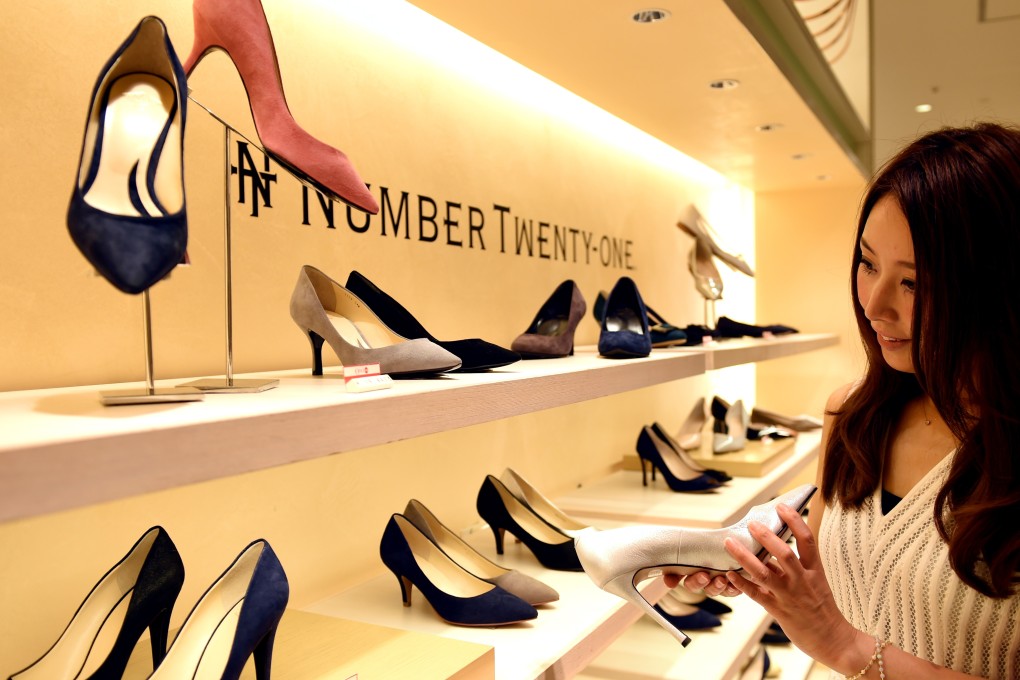MeToo to KuToo: how Japanese women called time on high heels in the workplace
- Excruciating pain, bloodied feet. It’s all part of the working day for Japanese women, who say unwritten rules of the office discriminate against them
- But a new campaign, started by a tweet, aims to kick those rules into touch

Yumi Ishikawa had been standing for hours in the black high heels she was required to wear for her work as an attendant at a funeral home in Tokyo. The pain surging through her back, legs and feet was excruciating, as she looked enviously at her male colleagues strolling about in flat, black brogues. “If women were allowed to wear shoes like that, our jobs would be less uncomfortable,” she thought to herself. And so she tweeted this thought.
That tweet, in January 2019, instantly went viral, gaining more than 68,000 likes. Soon, a movement was born. #KuToo – a combination of the words kutsu (shoe), kutsuu (pain or agony) and the MeToo hashtag, became a hot topic in Japanese media and on social networking platforms.
The campaign has launched countless online discussions about a woman’s right to comfortable footwear, many of them featuring photos posted by women of their bloodied shoes and feet. The movement has even inspired artwork, including a manga cartoon featuring a tiny office worker dismantling the heel of a black formal shoe.
To date, more than 16,000 people have signed a petition Ishikawa created on Change.org in February; the form urges Japan’s ministry of health, labour and welfare to stop companies from pressuring women to wear high heels for their work.
While high heels are not explicitly part of most companies’ dress codes, Ishikawa, 32, said they were often an “unspoken rule” that went unchallenged. “Job-hunters are told ‘It’s good manners for women to wear heels,’ by office clothing salespeople and job-hunting instructors,” she said.
“Since this movement began, I have seen some companies say ‘we don’t force people to wear heels at our workplace’,” said Ishikawa, adding that such companies are few. “The government needs to understand that this is a social problem and [is] discrimination against women – not a problem we face as individuals.”
According to the local press, a survey found that 70 per cent of women working in Tokyo wore high heels at least once a week. However, social expectations that women should wear heels are widespread across the country. In 2017, the Hilton Hotel Osaka reportedly offered female customers cocktail discounts based on the height of their heels; the heel had to be higher than 5cm to receive the minimum 10 per cent discount, while a 15cm heel granted the patron 40 per cent off their drink.
Kaori, an office worker in her thirties, said that although she worked for a slightly more relaxed Japanese travel conglomerate, the company dress code still required women to wear shoes with “a heel”.
“Staff in retail outlets and customer-facing positions are required to wear uniform or business attire, including high heels,” she said. “I primarily work behind the scenes so the dress code is a little more relaxed, but we do need to be smart and professional at all times,” said Kaori. Jeans and trainers were definitely out, she said.